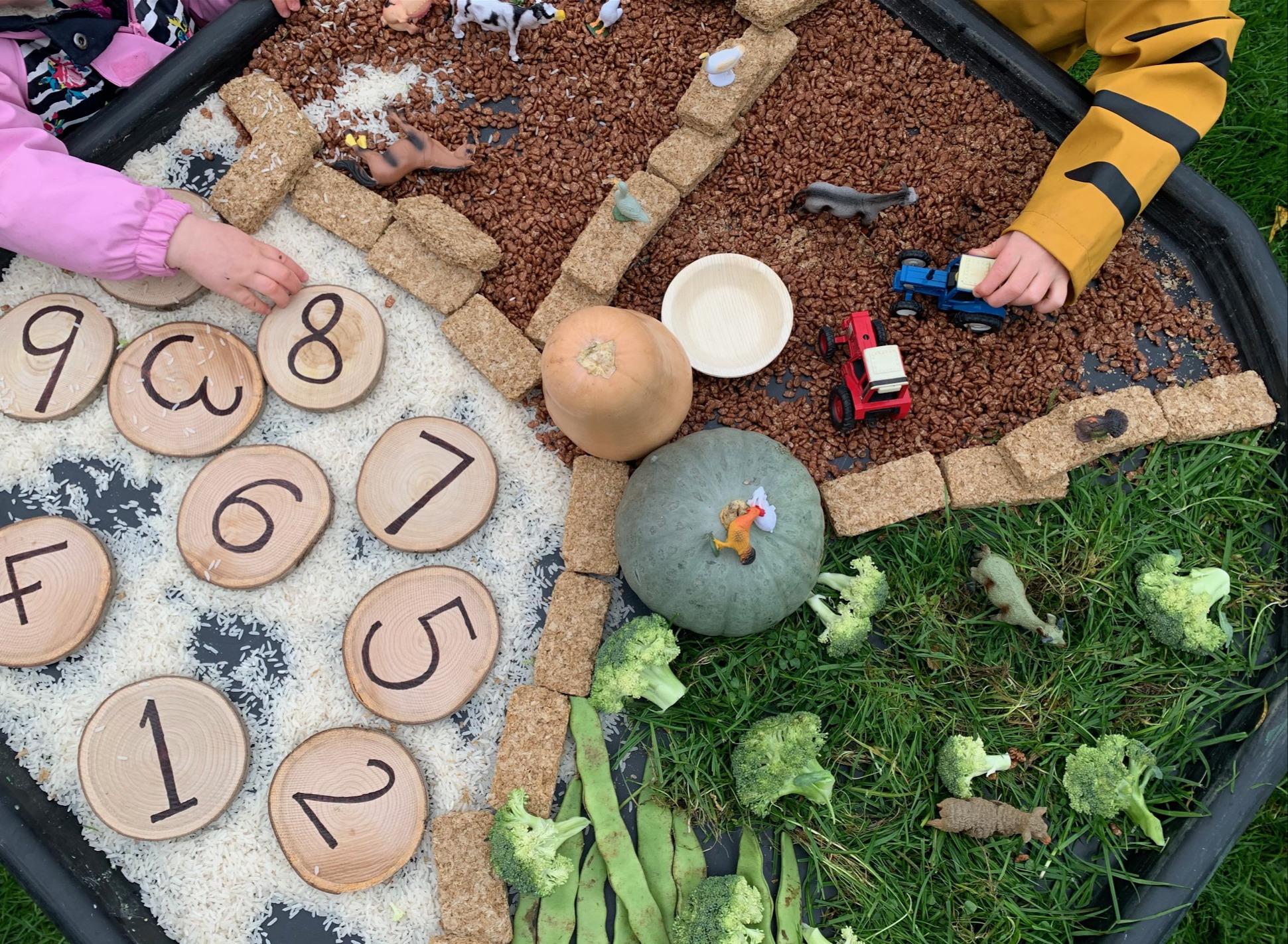Using food products in children play
As food prices continue to rise, is it appropriate to use food in play?
I have in the past created play trays using food items, like a farm small world using cereal and broccolli, and when my girls were small we dyed spaghetti for sensory play and made pasta necklaces to practice threading skills. We have also used pumpkins to practice hammering in nails or added sliced lemons to the mud kitchen. But I am becoming more and more uncomfortable using these mediums for play as we continue to try and reduce food waste in our daily lives.
March sees Food Waste Action Week, where many of us will make a conscious effort to reduce the amount of food we waste to reduce our environmental impact and counter the ever-growing cost of living.
Food play does offer children a tool for creativity, sensory development and learning, however this can also be acheived by growing your own vegetables, making bird feeders and baking cakes together.
At Little Trees, I will be taking a more conscious approach to using to using food products in play and learning - and I always welcome conversations about our impact or approach. Do you think we should remove food from play? Or do you think it is essentail to learning in the early years and beyond?
I have in the past created play trays using food items, like a farm small world using cereal and broccolli, and when my girls were small we dyed spaghetti for sensory play and made pasta necklaces to practice threading skills. We have also used pumpkins to practice hammering in nails or added sliced lemons to the mud kitchen. But I am becoming more and more uncomfortable using these mediums for play as we continue to try and reduce food waste in our daily lives.
March sees Food Waste Action Week, where many of us will make a conscious effort to reduce the amount of food we waste to reduce our environmental impact and counter the ever-growing cost of living.
- Wasting food costs the average family around £700 a year
- 6.6 million tonnes of household food is wasted every year in the UK - this doesnt even include restaurants etc.
Food play does offer children a tool for creativity, sensory development and learning, however this can also be acheived by growing your own vegetables, making bird feeders and baking cakes together.
At Little Trees, I will be taking a more conscious approach to using to using food products in play and learning - and I always welcome conversations about our impact or approach. Do you think we should remove food from play? Or do you think it is essentail to learning in the early years and beyond?

